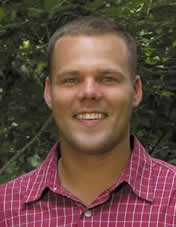Where do students go once they graduate?
The article is entitled “Where do they go once they graduate?” and summarizes some of the highlights from a recent conversation with youth workers. Dr. Powell explains that “the common description of maturity is inadequate. Focus group members have found that two common descriptions of seniors’ ‘maturity’ or ‘health’ do not, by themselves, create a healthy bridge into college. The first of these descriptors was a verbal ‘profession of faith.’ The second was ‘performing the faith,’ or showing moral behaviors (i.e., not drinking alcohol, avoiding drugs, sexual abstinence). While both a verbal profession of faith and moral behaviors might be helpful for a graduate, they were generally viewed as inadequate in fully preparing a student for life after college.”
There is also a list and explanation of the “qualities of a graduate who is likely to transition well into college life.” They include having a Christian worldview; being able to articulate the Christian story in one’s own language; being community minded; involvement in a small group; and having adult mentors.
The article includes discussion questions to be used by youth workers and parents to reflect their own practices for preparing students for college.



0 Comments:
Post a Comment
Subscribe to Post Comments [Atom]
<< Home